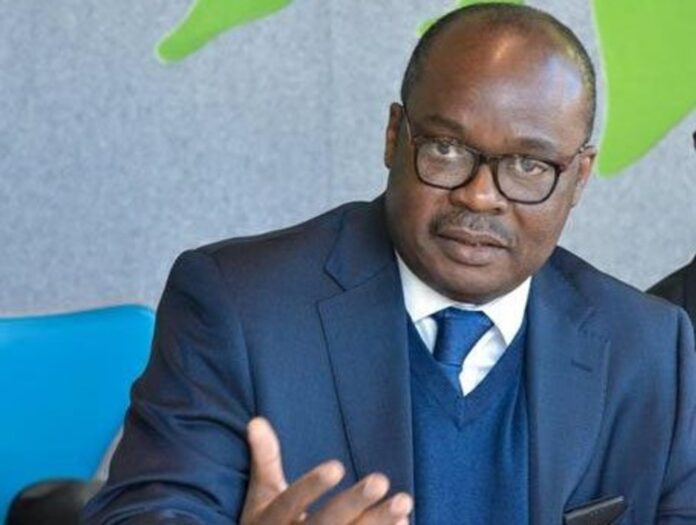Former UT Bank founder and CEO Prince Kofi Amoabeng has questioned the International Monetary Fund’s (IMF) involvement in the closure of UT Bank and how the process was carried out.
Speaking on Joy News’ PM Express Business Edition on Thursday, January 16, he expressed concerns about the Bank of Ghana’s decisions and whether they were unduly influenced by external pressures.
“It was a very interesting comment,” Amoabeng began, referring to the Bank of Ghana Governor’s assertion that the IMF had influenced the decision.
“One, I had my suspicions that the IMF had a role to play in it, but I couldn’t confirm it. So if you ask me, I believe in what the governor said, that the IMF influenced the program.
“But then, it’s a sad statement for him to make because it means the leadership in Africa doesn’t have the independence and the will to do what is right for their country, and they have to be dictated to.”
Kofi Amoabeng pointedly questioned the specifics of the IMF’s alleged influence, especially regarding the dramatic and controversial manner in which the closure of UT Bank was executed.
“So, you want to take IMF orders to close local banks. Did the IMF ask them to close UT Bank at 6 a.m. with Bank of Ghana officials and the police in Rambo-style to go and remove the signage? Was that precision by the IMF? So, who did that?”
He also criticised the broader implications of the actions taken, extending beyond the bank itself.
“Did the IMF tell them that they should also attack the other UT companies, to collapse the whole UT group? Because that’s what they did. They closed the accounts of all UT companies, including UT Holdings. Did the IMF tell them to go after the founder who had resigned 20 months before the closure?”
For Prince Kofi Amoabeng, the process highlighted a lack of foresight and care for the broader consequences on stakeholders.
“There are a lot of questions. I don’t live in the past, but this is a current thing, and you brought it up, so I think it’s quite worrying—or should be worrying for Ghanaians—that we are appointing people into powerful positions, and then they come back and tell us that they were ordered to do it, without reference to how it’s going to affect the staff, how it’s going to affect the investors.”
He reminded viewers of UT Bank’s stature and the lives tied to it.
“Don’t forget, UT Bank was a listed company. We had about 15,000 individuals owning shares, and the government didn’t address any of these things at all. Was that all under the instruction of the IMF?”
Kofi Amoabeng concluded with a critical reflection on leadership and sovereignty in Ghana’s financial management.
“What is said is very shallow on the surface. It only exposes the governor’s position, and of course, it shows that the economy is very weak, and we have leaders who just take in anything that is ordered from the imperialists or the developing partnerships, so to speak.”
ALSO READ:

